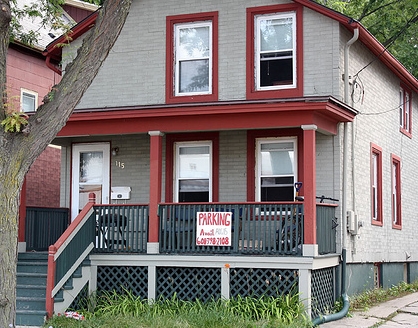Legislation passed by North Carolina’s General Assembly is forcing Raleigh to revise its current rental registration and inspection policies Probationary Rental Occupancy ordinances in order to comply with a new law.
Inspectors used to have more leeway in determining what rental properties to inspect, but now they must demonstrate “reasonable cause” before inspections. The law also requires rental properties to be inspected in the same fashion as single-family dwellings, removing what many landlords viewed as a discrimination against rental property owners.
Reasonable causes listed in the statute include landlords or owners with two verified housing ordinance violations with 12 months, a complaint or a request to inspect substandard housing conditions, the inspection department already knows of an unsafe condition or ordinance violations are visible from outside the property.
Raleigh will also have to reduce the fees it requires for rental registration to comply with the new legislation. The old law charged property owners $30 for the first unit and $10 for each additional unit.
Under the new law, properties with 20 or more units shall pay no more than $50 per year total; properties with more than three but less than 20 units will be charged no more than $25 per year and properties with three or less units, the fee is limited to $15 per year.
Previous fee structures had been described as a “housing tax” by the Apartment Association of North Carolina, which views the new legislation as a “major victory.”
District D City Council member Thomas Crowder disagrees.
“Most professional or business organizations have fees of some type to regulate and to police their industry. The fees are used to protect the health, safety and welfare of the general public. Until the rental registry the rental industry paid no fees versus other professional organizations.”
The old fee structure generated close to $1 million dollars annually. Part of that amount funded the city’s Probationary Rental Occupancy Permit program, which concentrates enforcement on rental properties with a history of public nuisance or noise violations.
According to Crowder, “PROP has been working well and we’ve seen a reduction in public nuisances and nuisance parties. I think over the first year it was reduced by 30 percent and very few people have received PROP permits. Under the legislated structure it will generate about a third of what it will take to run the program. That will mean the taxpayer must make up that difference to regulate and police the industry.”
Senior Housing Inspector Ashley Glover said the city’s attorneys will soon meet with the inspection department to begin the process of rewriting the ordinances.
Nicolette Fulton, associate city attorney, will be heading up that effort. She told the Record that she does not know when the rewritten ordinance will be ready.
Until the new ordinances are written, the old fees may still apply, according to Glover.
“If anyone owes fees for the 20011 registration year, which takes place between March 1 and April 30, the fees are still in effect,” he said.
